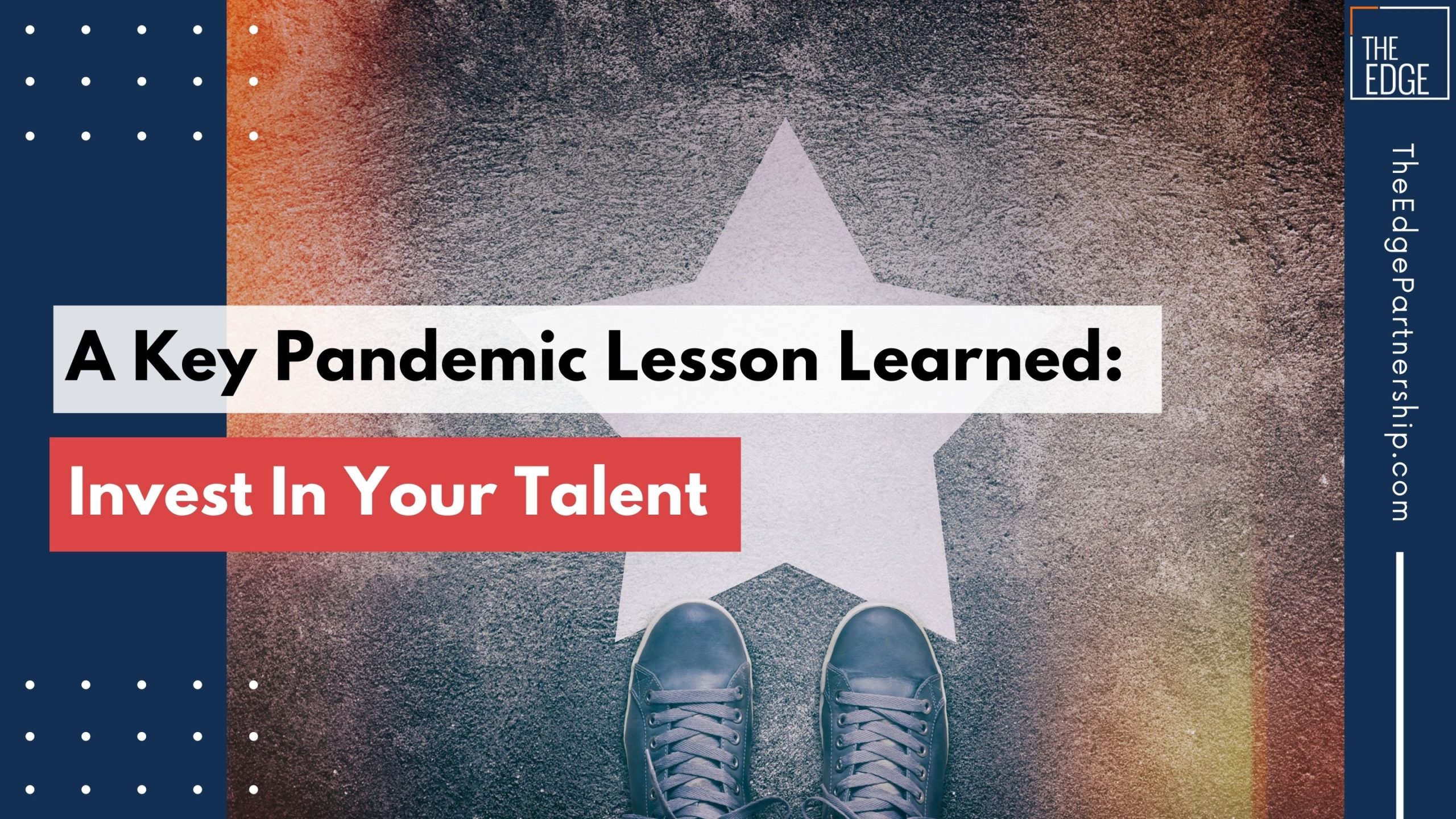
Why Now Is The Time To Invest in People
October 2021

October 2021
During the Great Recession of 2008 to 2009, many companies failed to focus on the right things as unemployment was spiralling and the job market seemed to favour employers and not job seekers.
Companies took for granted their position of strength during the economic downturn and struggled to deploy strategies to retain certain skilled employees, and by 2010, many of them had close to no retention plan.
Similarly, the Covid-19 pandemic served as a multipronged challenge for employers. The shift in employee mindset has moved from career advancement and total compensation to a greater focus on the things that matter, to what they value the most.
This has resulted in ‘The Great Resignation’ where people may even be prepared to quit their jobs if certain expectations aren’t met.
Here’s how and why there is a need to invest in people right now.
An important point to consider is the cost of voluntary turnover. In 2010, Deloitte reported that when nearly 15 million people were without jobs, employers still could not fill about 2.5 million positions with the right candidates.
What went wrong? Employers didn’t invest in the development and growth of their existing employees, and when new opportunities arose, those skilled talent left.
If we fast-forward to today, amid a global pandemic and the worst economic crisis since the Great Depression, tens of millions were out of work, and most businesses were struggling to survive.
Now, while there’s a tight market for talent, there is an even greater demand for skilled and experienced talent – organisations are doing everything they can to create flexible benefits and a personalised workplace.
For some companies, the instinct during the pandemic was to retract investments in employees. It’s an intuitive reaction, but these short-term decisions could have long-term negative financial repercussions in the form of voluntary turnover.
Given the number of people furloughed since the pandemic, many companies are filling multiple roles and likely critical to business survival.
It seems natural for businesses that want to adapt to changing market conditions, improve remote work processes, and maintain productivity with scattered teams, they need to support their people.
There’s more pressure than ever on people to produce and help their employers succeed. However, some people may not be equipped to cope with the demands of today’s workforce. The McKinsey Global Institute data shows that 87% of business leaders report skills gaps or expect them in the coming years.
As companies grow, they must invest in the right kind of people and confront any skills gaps that their organisations are facing. In a post-pandemic world, skills will become the currency for the future of work.
At The Edge Partnership, we recognise the skills gap and have even set up The Edge People Solutions (TEPS) to ensure we find the right fit. Many industries are experiencing significant changes and a restructuring of their cost base and operating models.
They may require a recruiting partner that sees through all their talent needs to provide customised solutions. We have supported high volume hiring campaigns, turnkey projects in the form of a mini-RPO with competitive pricing structures pan-Asia.
In the context of addressing skills gaps, we are also able to support clients whose needs are more modest and not requiring a niche talent search.
Adam Grant, professor at the University of Pennsylvania Wharton School of Business and an organisational psychology expert advocates for boards to have a committee focused on culture and talent strategy.
Having recruitment expertise and advice on what talents work makes financial sense. PwC estimates up to 85% of a major company’s expenses can be tied up in talent — it’s the largest investment a company makes about every year.
There is a greater push for a smarter workforce strategy and this is about making a shift in mindset. This mindset shift is important as companies start 2022 by rewriting their business strategy, HR and operations playbook for a remote/hybrid work arrangement, climate-conscious and socially-responsible future.
Getting the right ‘People Solutions Team’ to manage the complexities of the talent agenda will be a key focus for organisations moving forward.
As organisations adapt and create systems in place, rampant hiring and investment in the right skillsets will be a priority. Today’s market offers more opportunities for employee and employer alignment.
Successful companies would be investing heavily in reskilling and upskilling for the next 3 to 5 years with constant evaluation based on industry shifts.
The key is to understand what skills transformation looks like depending on your industry including a constant evaluation based on industry trends, classifying skills, mapping them to meet your company’s specific goals and implementing strategies to build them.
The focus for companies today should not only be on hiring the best, but also investing in their development.
If you want to map your talent needs for 2022, get in touch with our team and head over to The Edge People Solutions page for more information. As experts in hiring the top talent in major Asian markets, we can help you find the right fit.